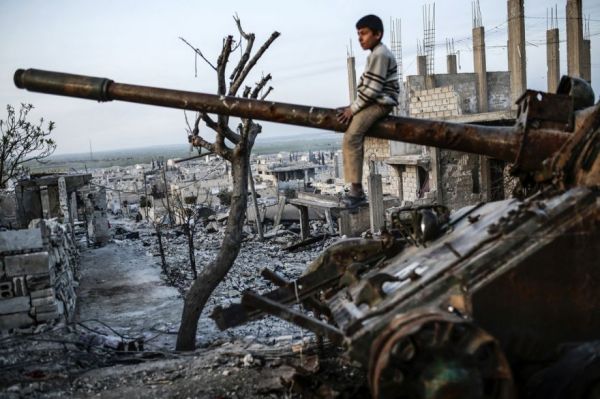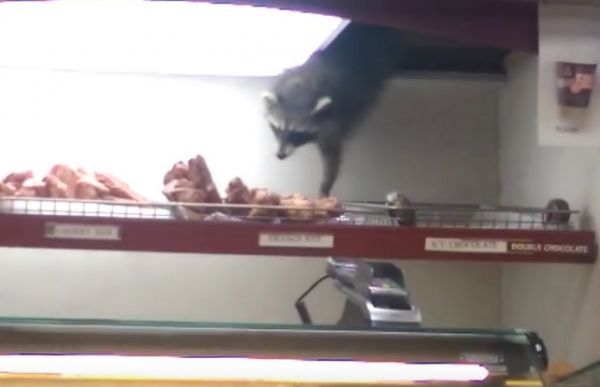Witness the reality of the Republican cabal's keep-the worker-down economics and
its persistent drive to re-distribute wealth from the bottom to the top…

I have been writing quite a bit on income inequality lately with a
particular focus on the narratives and values at work in our culture
which justify inequality and shape the belief that economic inequality
is consistent with a democratic and supposedly egalitarian society. As a
society, Americans hold many beliefs that express, with varying degrees
of consciousness, a deep commitment to inequality.
For
example, I think it’s fair to say that many, if not most, Americans
seem accepting of the fact that different kinds of work are remunerated
differently. We don’t hear too many complaints about the doctor or
lawyer receiving a higher salary than the custodian or postal worker.
In my own view, we should complain about this disparity. It’s not
clear to me why people spending forty hours of their week performing
socially necessary work deserve more or less than others. Of course,
when I express this opinion, I receive lots of complaints.
One of the most frequent objections littering the comment sections at
the end of my articles is that jobs being remunerated with a minimum
wage are jobs that require minimum skills, making the situation just.
Thus, if people want to improve their wages, they need to improve their
skills or acquire new ones that merit higher pay. The idea, quite a
prevalent one in our society–constituting an almost common sense—is
premised on the assumption that wage levels somehow correlate with skill
levels.
Yet this “skills myth,” as we might call it, is just that, a
powerfully dangerous myth that is disarming in its power to cloud our
perception of the real forces driving down wages in our economy. The
term the “skills gap” has dominated the rhetoric accommodating the
American psyche to gross economic inequality, promulgating the illusion
that American workers’ economic woes are attributable to their own lack
of appropriate skills for the jobs demanding the highest salaries rather
than to concerted efforts on the part of capital to disempower workers,
largely though not exclusively through assaults on labor unions over
time, and erode wages.
While in fact many jobs have not changed, studies show that on the
whole real wages have been declining in many occupations. Last
September, in an economic environment characterized by substantial job
creation,
CNBC’s Jeff Cox reported,
“For all the talk about the nearly 250,000 jobs a month the economy is
creating, workers’ real wages, including the cost of living, are going
backward. Average pay in real terms slumped 4 percent from 2009-2014,
according to the National Employment Project.”
That
wages are declining in jobs for which the skills required have not
altered debunks the myth that wages are declining because the American
worker lacks skills. Indeed,
the Economic Policy Institute earlier this year presented an analysis suggesting
the opposite, concluding, “Workers with a four-year college degree saw
their hourly wages fall 1.3 percent from 2013 to 2014, while those with
advanced degrees saw an hourly wage decline of 2.2 percent. If demand
for high-skilled workers were driving wage inequality, we would expect
to see these workers’ wages increasing, or at the very least, falling
less than their low-skilled counterparts.”
Thus, it is not workers’ lack of skills driving down wages, but the all-out assault on workers and unions.
Last
July, janitors in the school system in Barrington, Illinois went on
strike because their wages were being cut from $9.77 to $8.50 per hour. Did these workers’ skills change?
Not at all.
In
the arena of education, given technological developments, teachers
actually need to possess more skills than in the past, and certainly not
less. Yet the charter school movement has been responsible for driving
down teachers’ salaries. Why? Because charter schools typically
feature a non-unionized faculty, prompting many to understand the
charter school movement as a movement largely intended to break powerful
teachers’ union. Again, the skills required for the work have not
changed; rather the assault on workers’ rights and on wages has
intensified.
In an interview regarding the resurgence of manufacturing in South
Carolina's Republican Moron Haley celebrated the absence of
unions in her state, explaining to
CNBC’s Phil LeBeau,
“We don’t have unions in here for a reason. And that’s because of the
complement between the companies and what they know they need to do is
value their workforce and it’s the workforce who knows they’re part of a
family and they don’t want a middleman getting in the middle of it.”
I guess being part of family means workers give their
paternalistic bosses a discount to the tune of ten dollars per hour,
which is how much less Boeing’s skilled machinists earn in Haley’s neck
of the woods compared to their unionized counterparts in Washington
state. I’m not sure what worker focus group Haley convened to discern
workers’ perspectives, but her sense of what the workforce wants is
noticeably out-of-sync with the
recent Gallup poll indicating
that Americans’ approval of unions has been rising, standing now at
58%, up 5% over the past year and 10% since 2009. The percentage of
Americans wanting labor unions to have more influence has also increased
5% to 37%since 2009, while the percentage of Americans wanting unions
to have less influence has decreased 7% to 35%.
While perhaps we can’t be sure about the exact cause of Americans’
growing support for unions, it would be beyond silly to think that the
unrelenting assault on wages and workplace rights don’t have something
to do with this changing perception of the role and need for unions. It
seems that workers may increasingly be desiring “a middleman getting in
the middle” of that otherwise happy family Haley references, a family
riven by the Republican cabal’s intensifying agenda of class warfare.
Of late, the Dickensian rhetoric like Haley’s, typical of Republican
rhetoric designed to assuage class tensions and deny the reality of the
class warfare they wage, has all but disappeared thanks to Dumbass
Trump’s involvement in the wingnut primary fray and what seems to be his
case of political Turrets syndrome.
Indeed, the constant anto-worker statements from Trump, as cruel and
outrageous as they might initially seem, actually provide an accurate
description of the behavior of America’s economic elites in their
partnership with Republicans who craft legislation to underwrite their
interests. Republicans have reversed the course of Lyndon B. Johnson’s
quest for the Great Society and the war on poverty, and instead have
openly declared a war on the impoverished and those they intend to drive
into poverty.
The rhetoric of shared prosperity that informed their celebrated
trickle-down economics has disappeared, revealing the frightening
reality of the Republican cabal’s unabashed keep-the worker-down economics and of its
persistent drive to re-distribute wealth from the bottom to the top.
Enough is never enough.
The class warfare agenda has been blatantly announced.
Trump, of course, notoriously revealed his ideas for driving down the
wages of autoworkers, whom he deems overpaid, by closing and
re-locating plants:
“You
can go to different parts of the United States and then ultimately
you’d full-circle—you’ll come back to Michigan because those guys are
going to want their jobs back even if it is less. We can do rotation in
the United States—it doesn’t have to be in Mexico.” The objective is
to make Americans desperate and disempowered so they’ll work for even
fewer crumbs from the proverbial cake corporate America eats but which
the working classes bake.
And if you thought Trump was just putting his foot in his mouth,
he doubled down on these comments
in a subsequent appearance on MSNBC’s “Morning Joe,” declaring his
antipathy to the minimum wage and arguing that the U.S. could attract
more jobs if there were no minimum wage.
Of course my point is that Trump’s comments are not idiosyncratic in
their content, even if his articulation of this content is unusual. Walker has proudly insisted that the minimum wage “serves no
purpose” and stands by his roll-back of collective bargaining rights in
Wisconsin. Moreover, Trump’s strategy for reducing wages perfectly
describes what is happening in Haley’s South Carolina: corporations are
moving there to avoid unions and pay workers less. It’s no secret,
despite the “happy family” rhetoric that seeks to mask this reality.
If we are going to have a serious discussion of income inequality in
this country, we need to see through the damaging and specious rhetoric
that justifies inequality in so many people’s minds. A common -sense
look at what is—and who is—really driving down wages for middle and
working class people will show us that the assault on wages is linked to
a de-valuing of people and their skills simply in an effort to continue
the socially destructive project of re-distributing wealth to the top,
increasing profits at workers’ expense, and politically crippling the
labor movement.






















